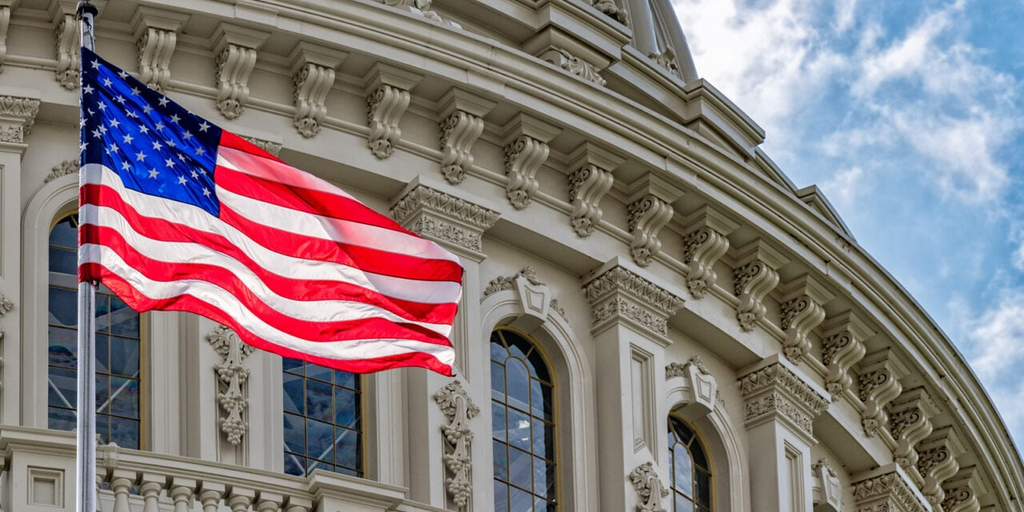
In a potential sign of brewing tensions regarding key language in multiple stablecoin bills circulating in Congress, House Majority Whip Tom Emmer (R-MN) said this week he doesn’t believe stablecoin issuers like Tether should have to comply with the anti-money laundering Bank Secrecy Act—a major sticking point of both the Senate’s stablecoin-focused GENIUS Act, and the House’s parallel STABLE Act.
Including such a provision in the legislation would unfairly box out foreign issuers, Emmer argues. The lawmaker believes stablecoin issuers, regardless of jurisdiction, should not be subject to the stringent anti-money laundering rules under the Bank Secrecy Act.
“The protections the so-called Bank Secrecy Act is supposed to provide were drafted for cash, and this is blockchain-driven,” Emmer told Decrypt Wednesday evening. “And guess what, everything on the blockchain is open and transparent to people who understand how to follow code.”
“It’s pretty interesting to say that the Bank Secrecy Act—which doesn’t even contemplate this type of technology, a digital asset—should be what we’re using,” the congressman added.
Stablecoins are digital assets typically pegged to the U.S. dollar and designed to keep a steady price. They’re used by cryptocurrency traders to enter and exit positions without the need for dollars, and used as dollar equivalents in markets where dollars are restricted or inaccessible.
The latest drafts of the GENIUS Act and STABLE Act treat all stablecoin issuers as financial institutions under the Bank Secrecy Act. The law, enacted in 1970, established a stringent set of proactive anti-money laundering rules that American banks must comply with in order to operate.
The Bank Secrecy Act, for example, obligates regulated institutions to engage in suspicious activity monitoring, undergo routine audits, hire compliance officers, and adopt a customer identification program mandated by the Patriot Act—the controversial law that expanded government surveillance powers shortly after the September 11, 2001, terrorist attacks.
Such requirements would pose quite a hurdle for existing foreign stablecoin issuers like Tether, the company behind USDT and the market’s undisputed leader. Tether, whose USDT stablecoin boasts a market capitalization in excess of $144 billion, is based in the U.S. Virgin Islands, and plans to move to El Salvador—but nonetheless is one of the world’s biggest purchasers of U.S. Treasuries, which it uses as collateral to back its U.S. dollar-pegged stablecoin.
In its current setup, Tether enjoys much less strict regulation than the Bank Secrecy Act would mandate, and the company’s leadership has implied that moves to force all stablecoin issuers to comply with such rules would hurt the firm and aid its competitors. By contrast, Circle, the issuer behind the market’s second-largest stablecoin USDC, is already based in the United States. While Circle does not yet comply with the Bank Secrecy Act, the company is regulated as a money transmitter by the New York Department of Financial Services.
Circle is also already in compliance with the European Union’s elaborate MiCA regulatory framework, a move Tether has resisted.
As stablecoin legislation in the U.S. nears a crescendo, questions have emerged regarding whether Tether would come to the United States if it had to comply with the Bank Secrecy Act—or, alternatively, what would happen if the stablecoin market’s top player was boxed out of American financial markets.
Emmer does not want to risk locking Tether, or any other foreign issuer, out of the burgeoning U.S. stablecoin sector.
“We’ve got to let everybody compete in this space,” he said.
That doesn’t mean Tether wouldn’t have to comply with certain rules in order to operate in the United States. To Emmer, the sticking point is proof of reserves—showing the government that your token is backed up with sufficient collateral to keep its value pegged to the dollar even in periods of market volatility.
To that end, Emmer believes Tether is, broadly speaking, doing well. In 2021, the company partnered with Wall Street firm Cantor Fitzgerald to help custody some of the $92 billion worth of U.S. Treasuries it claims to currently hold in reserve.
“Tether has done a great job straightening itself out in the last four years,” Emmer said.
The House Financial Services Committee is set to mark up the STABLE Act during a session next week. Meanwhile, the GENIUS Act already passed out of the Senate Banking Committee earlier this month with strong bipartisan support—Bank Secrecy language intact. It is likely to face a full vote on the Senate floor in the coming months.
Daily Debrief Newsletter
Start every day with the top news stories right now, plus original features, a podcast, videos and more.
https://decrypt.co/312066/stablecoin-bills-unfairly-box-out-tether-house-majority-whip-emmer








